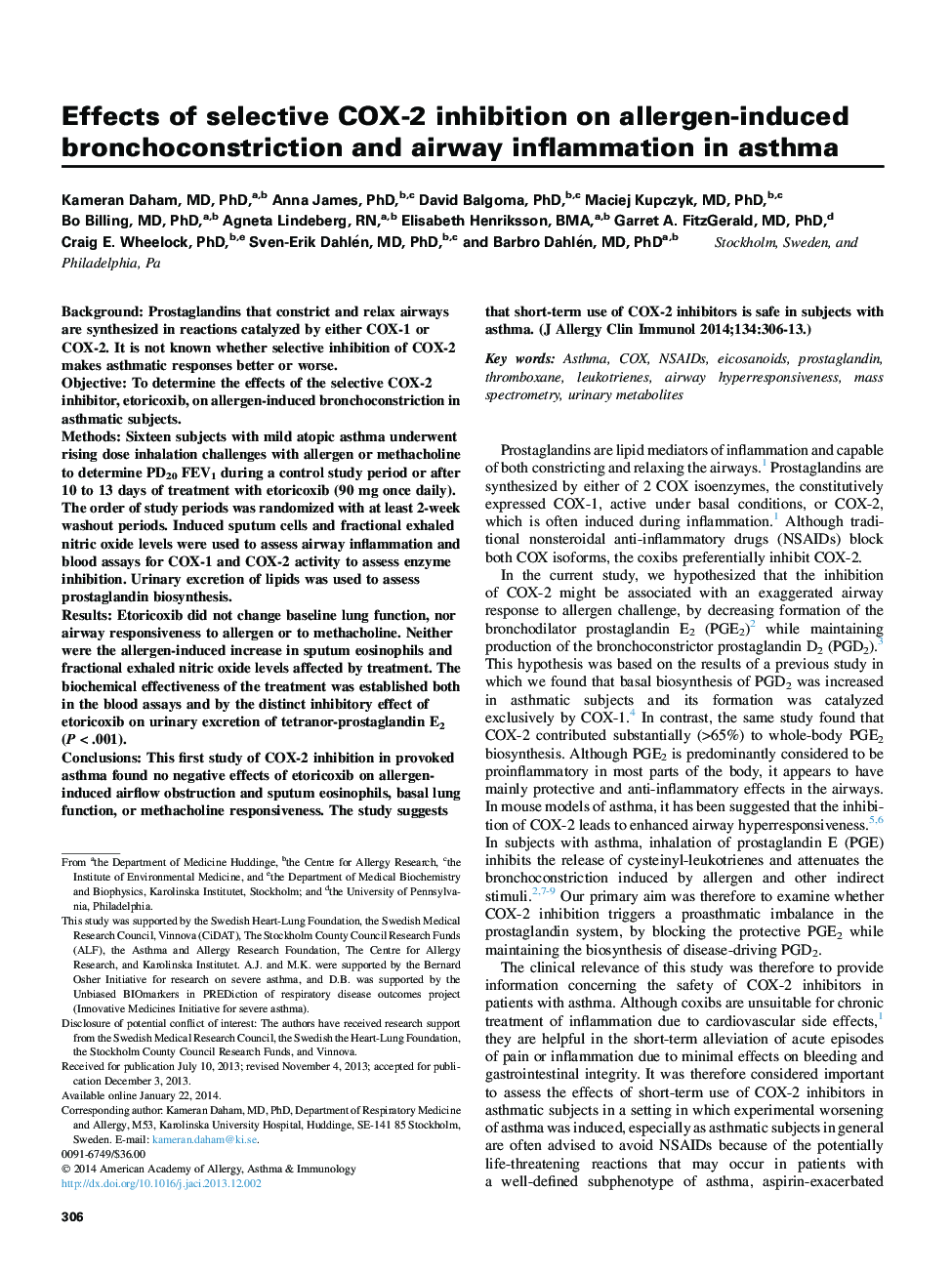| Article ID | Journal | Published Year | Pages | File Type |
|---|---|---|---|---|
| 3197488 | Journal of Allergy and Clinical Immunology | 2014 | 8 Pages |
BackgroundProstaglandins that constrict and relax airways are synthesized in reactions catalyzed by either COX-1 or COX-2. It is not known whether selective inhibition of COX-2 makes asthmatic responses better or worse.ObjectiveTo determine the effects of the selective COX-2 inhibitor, etoricoxib, on allergen-induced bronchoconstriction in asthmatic subjects.MethodsSixteen subjects with mild atopic asthma underwent rising dose inhalation challenges with allergen or methacholine to determine PD20 FEV1 during a control study period or after 10 to 13 days of treatment with etoricoxib (90 mg once daily). The order of study periods was randomized with at least 2-week washout periods. Induced sputum cells and fractional exhaled nitric oxide levels were used to assess airway inflammation and blood assays for COX-1 and COX-2 activity to assess enzyme inhibition. Urinary excretion of lipids was used to assess prostaglandin biosynthesis.ResultsEtoricoxib did not change baseline lung function, nor airway responsiveness to allergen or to methacholine. Neither were the allergen-induced increase in sputum eosinophils and fractional exhaled nitric oxide levels affected by treatment. The biochemical effectiveness of the treatment was established both in the blood assays and by the distinct inhibitory effect of etoricoxib on urinary excretion of tetranor-prostaglandin E2 (P < .001).ConclusionsThis first study of COX-2 inhibition in provoked asthma found no negative effects of etoricoxib on allergen-induced airflow obstruction and sputum eosinophils, basal lung function, or methacholine responsiveness. The study suggests that short-term use of COX-2 inhibitors is safe in subjects with asthma.
